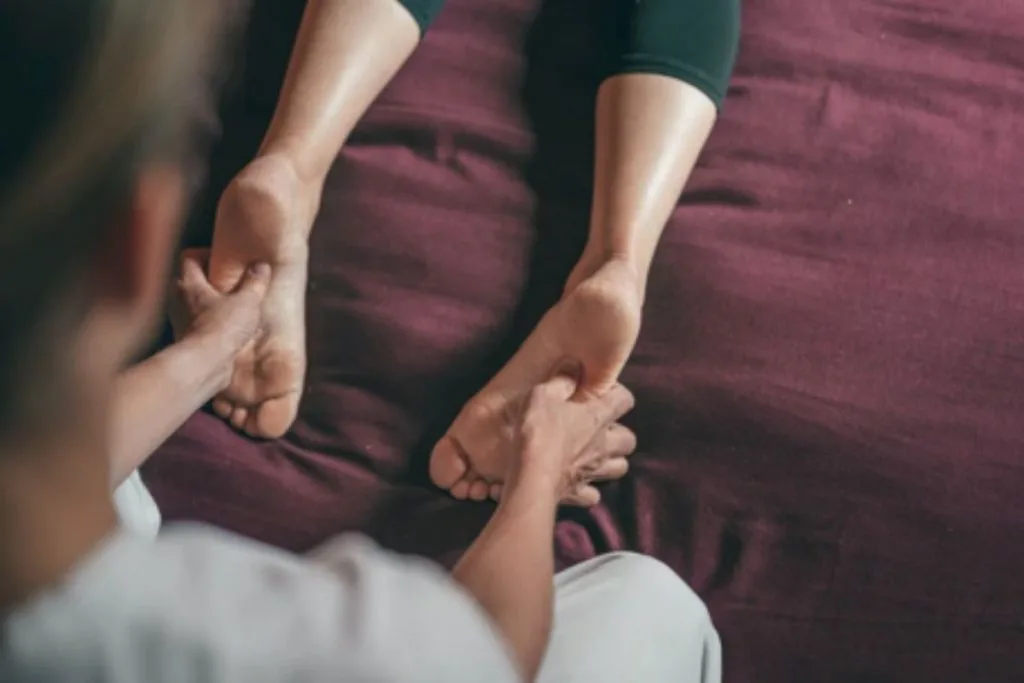Feet are our body’s foundation. The average person takes about 4000 steps each day to go about their daily tasks, which speaks volumes about the hard work our feet put in for us. Accordingly, taking care of them is crucial to staying active and our overall health.
While we tend to pay the most attention to and be careful about other parts of our body, many people overlook the importance of practicing good foot care. Neglecting foot health can lead to severe problems that could affect the rest of the body and interfere with our daily activities, thus impacting mobility. Therefore following a simple foot care routine can make a big difference in the long run by keeping you away from experiencing painful foot problems and maintaining your freedom to move.
The following strategies will prevent you from developing common foot conditions and help keep your feet happy, healthy, and pain-free.
Always Keep Your Feet Dry
Keeping your feet dry is a crucial aspect of preventing fungal infections that can develop from prolonged exposure to moisture like sweat. Perspiration creates the perfect breeding ground for bacteria to thrive, which can cause various foot conditions, with the most prevalent being athlete’s foot.
With that said, you can easily prevent this common problem and maintain healthy feet by wearing moisture-wicking socks made from materials like polyester or nylon. They will help keep your feet dry faster and better than cotton or wool socks and control foot odor as well. If you are a heavy foot sweater, then buy some socks in bulk and carry a spare pair, so it is possible to change them and refresh the feet instantly.
In addition, using talcum powder and wearing breathable shoes would also work in your favor to prevent moisture buildup and get your sweaty feet under control.
Keep Your Feet Clean
Having healthy feet starts with good hygiene and keeping them clean at all times. It is imperative to clean and scrub your feet with soap and lukewarm water each day, especially after workouts and before going to bed.
You must make sure to dry them thoroughly in between the toes to avoid fungal and bacterial growth. Besides, always wear flip-flops or shower shoes in public areas like changing rooms or showers at the gym to protect yourself from infection-causing fungi.
Moisturize Your Feet
After a thorough cleanse of your feet, get into the habit of moisturizing them with a thick lotion, especially around your heels. That will help prevent dry skin that may crack and bleed, causing pain and discomfort while walking.
Cut Toenails Regularly
Trimming your toenails frequently and with the correct technique is another critical component of having healthy and happy feet. Infrequent toenail cutting can lead to bacteria accumulating under the nail, causing the area to become infected. Long toenails may press against your shoes and lead to thickened nails, making it further painful to trim them. Besides, painful corns and calluses can develop under a thickened nail due to excess pressure from shoes, causing extreme pain and discomfort.
Lastly, nails left to grow too long or cut too short may become ingrown, a condition where they curve and grow into the skin, leading to pain or even an infection. Therefore, it is essential to cut your toenails at the right length- not too close to your skin, nor leave them too long.
Wear Properly Fitted Footwear
Wearing ill-fitting shoes can have some serious implications for your foot health in the long run. Shoes that are too tight can enhance your risk of foot conditions like blisters, ingrown toenails, bunions, corns and calluses, and other problems. Accordingly, choosing shoes that fit correctly is vital to maintain healthy and pain-free feet.
Purchase shoes that provide your heels and toes with plenty of room and breathing space and do not make them cramped. Never walk barefoot, as shoes and slippers are the simplest way to guard your feet against bumps, bruises, and harmful bacteria.
Examine Your Feet Daily
Taking the time to inspect your feet every week for blisters, cuts, redness, or swelling can help avoid serious complications later on. Look around the toes and soles for any peeling or scaling, as it may be indicative of an athlete’s foot. Check for discoloration of the nails, which could be a sign of nail fungus. If you have diabetes, inspect your feet every day as diabetic foot problems can cause serious complications and may require amputation if left untreated.

Many of us take our feet for granted by neglecting the importance of a basic foot care routine. Even the smallest of problems like a blister or ingrown toenails can exacerbate and turn into a worrisome complication, preventing us from partaking in our daily activities.
Fortunately, keeping your feet healthy and in good shape is not a cumbersome task. By practicing some basic preventive foot care techniques and getting periodic foot exams by visiting a podiatrist, you can ensure good foot health and prevent minor problems from aggravating into more serious ones.

